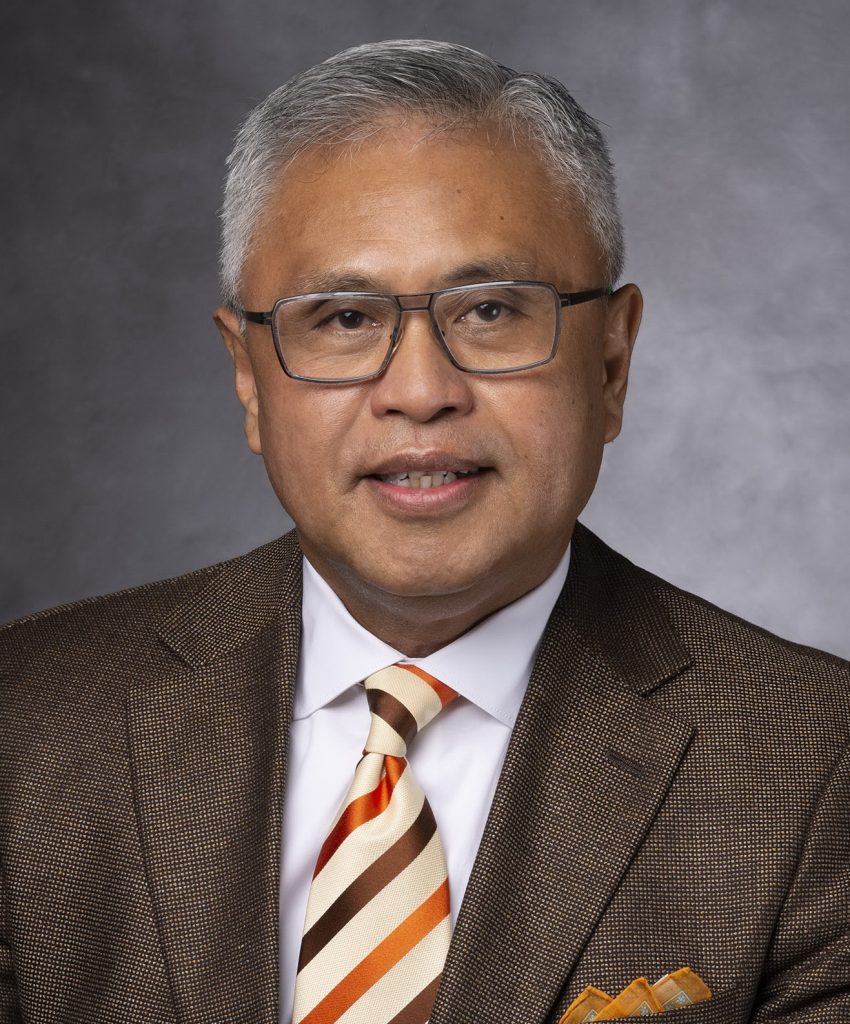Core Committee
You are here: > Faculty and Committees >> Core Committee
The Core Committee
The core committee is responsible for the day-to-day activities of the ANMB; arranging venues of the exam and funds for the fellowship, inviting faculty and implementing changes that have been suggested by candidates and fellows, and approved by the faculty.
The core committee, just like everything else at the ANMB, has evolved. The first core committee comprised of Profs. Jun Hatazawa (Japan), Henry Bom (Korea). Theo San Luis (Philipines) and Durr-e-Sabih (Pakistan). After several preliminary meetings (please see the timeline of evolution at the home page) it was decided to meet with the ENMB faculty and observe the FENMB exam. It was Vienna in 2013 that the outline of the ANMB was finally crystallized.
Observers from the ENMB faculty were invited to the first ANMB exam in Osaka in 2014. Since then the ANMB has gone from strength to strength.
Prof. Theo San Luis (Far left in this picture) retired from the ANMB in 2017.
Dr. Durr-e-Sabih (second from right) retired as Chair in 2024
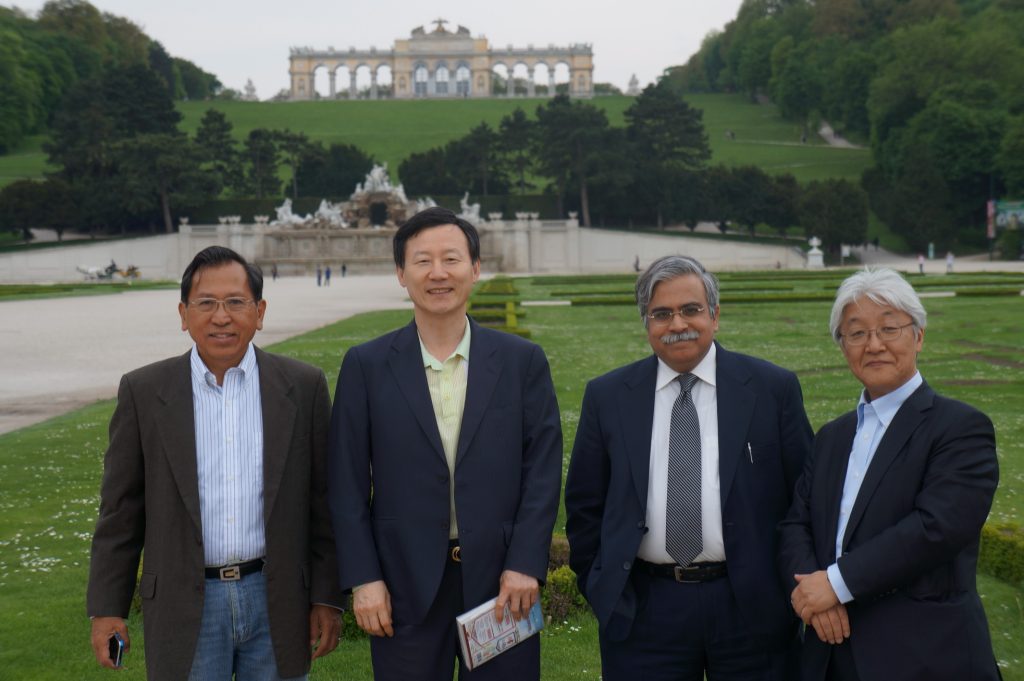
Current Core Committee (in Alphabetical Order)
Dr. Durr-e-Sabih (Multan Institute of Nuclear Medicine and Radiotherapy, Multan, Pakistan), originally proposed the idea of an Asian Board at a meeting with Prof. Henry Bom, Jun Hatazawa and Theo San Luis in Dhaka in 2010, and has since then been elected Chair of the Committee and looks after communication with fellows and candidates, implements optimizations to the exam process and is responsible for collating the questions at the faculty meeting and ensuring that the improvements are incorporated each year
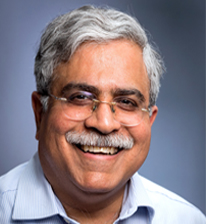
Professor Huang Gang is Dean of the Asia Oceania School of Nuclear Medicine, he is also ice Dean of School of Medicine, SJTU and he acts as academic pacemaker in nuclear medicine of Renji Hospital as well as Chairman of Chinese Society of Nuclear Medicine. As Dean of the AOSNM, Prof. Huang has been instrumental in setting up several satellite campuses of the AOSNMB that provide young Nuclear Medicine Physicians with the resources and opportunity to interact with world leaders in the profession and work in world class research environment.
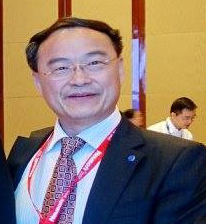
Prof. Henry Bom is Chairman of the ARCCNM and has arranged liaison between the ANMB and ARCCNM. As consultant for the RCA-RO, he has been responsible for setting up the RCA-RO e-Learning Campus at www.rcaro.org/elearning/. This website has largely been contributed to by the Fellows and Faculty of the ANMB and is an ongoing project that is enabling many young fellows to display their genius to an international audience by way of their prepared material.
The Fellowship that the ANMB has provided so generously till now has been arranged by Prof. Henry Bom.
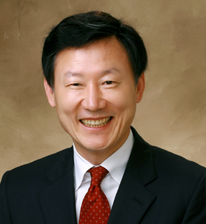
Prof. Jun Hatazawa is President of the AOFNMB and has provided leadership to the core group in our different processes. He has arranged support from the AOFNMB for various projects that are being contributed to by the Fellows and has arranged the Tomio Inoue award for some of the ANMB fellows.
He has also authored the textbook of basic nuclear medicine that appears on the website at(**).
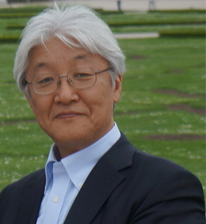
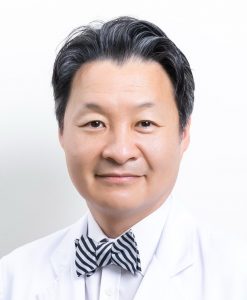
Dr. Rashid Hashmi is a dual trained nuclear medicine physician and radiologist with decades of teaching experience. His forte is teaching cross-sectional anatomy to non-radiologists and he runs several international courses for this every year. He is responsible for the cross-sectional mini-course at the pre-conference coaching session and along with Prof. Sze Ting, responsible for setting up the reporting session and OSCE question papers.
He is Associate Professor of Radiology at Rural Medical school of University of New South Wales, Sydney and also holds academic appointments at Medical School of University of Norte Dame Sydbey and School of Dentistry and Health Sciences at Charles Sturt University Wagga Wagga.
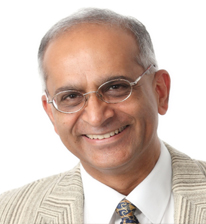
Associate Professor Sze Ting Lee is a Nuclear Medicine Physician at the Department of Molecular Imaging and Therapy at Austin Health, Melbourne, Australia, which is a quaternary hospital in Melbourne. She is also the Director of Training, the PET Lead in Lymphoma Trials and Theranostics Trials within the department, which is one of the largest departments in Australia. Her clinical and research interests lie in the novel tracers and applications of Molecular Imaging and Therapy in Oncological diseases.
She is the immediate past Secretary General of the World Federation of Nuclear Medicine and Biology (WFNMB), and also the Past President of the Australia New Zealand Society of Nuclear Medicine (ANZSNM). She is currently on the Governing Body of World Association of Radionuclide and Molecular Therapy (WARMTH), and the Australian representative to Asia Oceania Federation of Nuclear Medicine and Biology (AOFNMB) and was appointed the Vice Dean of the Asia Oceania School of Nuclear Medicine in 2018. She is also a Committee Member and Examiner for the Asian Nuclear Medicine Board examinations.
She, along with Prof. Rashid Hashmi is responsible for setting up the reporting session and OSCE question papers.
Dr. Sze-ting Lee is the current Chair of the Asian Nuclear Medicine Board.
She can be reached at [email protected].
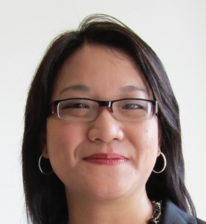
Prof. Dr. Akram Al-Ibraheem, MD, FRCP, FEBNM, DCBNC, FANMB, FRCPE, is the Chairman of the Nuclear Medicine and PET/CT Department at Jordan’s King Hussein Cancer Center. Al-Ibraheem currently serves as President of the Jordanian Society of Nuclear Medicine, President-Elect of the Asia Oceania Federation of Nuclear Medicine and Biology (AOFNMB), and Founding President of the Arab Society of Nuclear Medicine (ARSNM) from 2014 to 2019. He serves on the executive board of the World Federation of Nuclear Medicine and Biology and teaches as an adjunct professor at Jordan University.
He has served as an expert for the International Atomic Energy Agency since 2012. He founded and directs the nuclear medicine residency program at King Hussein Cancer Center (KHCC). He also worked as an international consultant for the WHO.
Prof. Al-Ibraheem is a prolific writer and international speaker has written and published over 130 articles in international peer-reviewed journals.
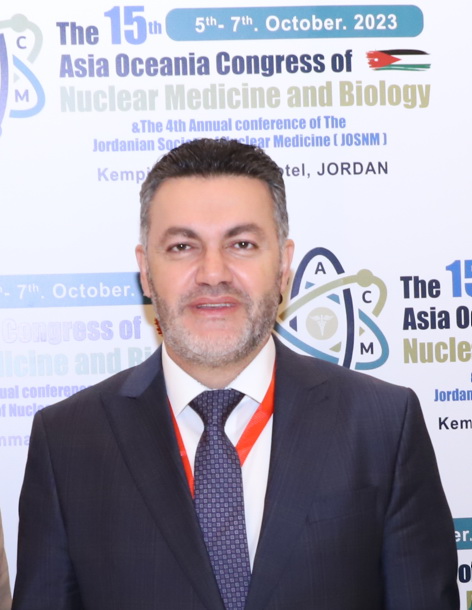
Dr. Homer A. Macapinlac is the James E. Anderson Distinguished Professor of Nuclear Medicine at the University of Texas M.D. Anderson Cancer Center in Houston, Texas and holds a joint appointment in the Department of Cancer Systems Imaging.
Dr. Macapinlac is an expert consultant to the IAEA, and an International Visiting Professor for the Radiological Society of North America. He has over 230 publications and is considered a national and international expert in the field of nuclear medicine and positron emission tomography.
